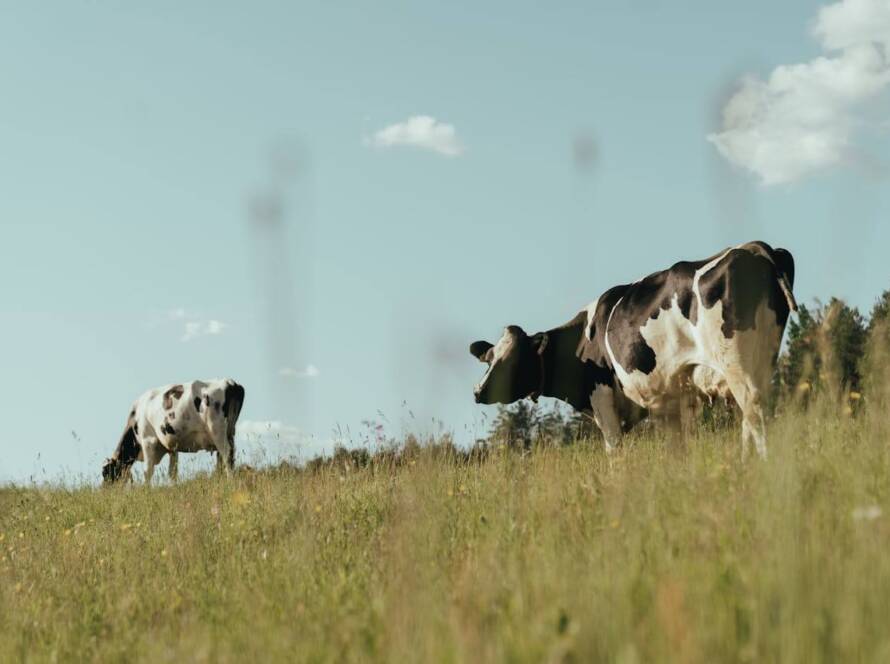In recent years, the demand for grass-fed beef has surged as more people seek healthier, more sustainable food options. When compared to conventional grain-fed beef, grass-fed beef offers a range of health benefits, a unique flavor profile, and a smaller environmental footprint. But what makes grass-fed beef so special? In this article, we’ll explore the reasons why choosing grass-fed beef can be a smart decision for your health, the environment, and the overall food system.
Health Benefits of Grass-Fed Beef
Grass-fed beef stands out for its superior nutritional profile, offering significant health advantages over grain-fed beef. Here are some key reasons why grass-fed beef is a healthier option:
1. Higher Omega-3 Fatty Acids
One of the most significant health benefits of grass-fed beef is its higher concentration of omega-3 fatty acids. These essential fats are known for their heart-healthy properties, including reducing inflammation, lowering blood pressure, and decreasing the risk of heart disease. Omega-3s also play a crucial role in brain health, potentially reducing the risk of cognitive decline and depression.
Cattle that graze on grass produce more omega-3s because their diet is rich in alpha-linolenic acid (ALA), a type of omega-3 found in plants. In contrast, grain-fed cattle, which are primarily fed corn and soy, produce more omega-6 fatty acids. While omega-6s are also essential, the modern diet is often overloaded with them, leading to an imbalance that can contribute to inflammation. Grass-fed beef helps restore a healthier balance of omega-3 to omega-6 fatty acids.
2. Rich in CLA (Conjugated Linoleic Acid)
Grass-fed beef contains higher levels of conjugated linoleic acid (CLA), a fatty acid with several health benefits. CLA has been linked to improved immune function, reduced body fat, and potential anti-cancer properties. Some studies suggest that higher CLA levels in the diet may help protect against heart disease and certain cancers, although more research is needed to fully understand its impact.
Grain-fed beef contains much lower levels of CLA, making grass-fed beef a better option for those looking to boost their intake of this beneficial fat.
3. Packed with Antioxidants and Vitamins
Grass-fed beef is a richer source of important vitamins and antioxidants, including:
- Vitamin E: A powerful antioxidant that helps protect cells from damage, supports immune function, and promotes healthy skin.
- Beta-Carotene (Vitamin A precursor): Grass-fed cattle consume more beta-carotene, which is converted into vitamin A in the body. Vitamin A is essential for vision, immune function, and skin health.
- Vitamin K2: This lesser-known vitamin plays a critical role in bone and cardiovascular health by helping regulate calcium distribution in the body.
These vitamins and antioxidants are found in higher concentrations in grass-fed beef because of the cattle’s natural, plant-based diet. Grain-fed beef, on the other hand, lacks these nutrients in the same abundance due to its corn- and soy-based diet.
4. Lower in Total Fat and Calories
Grass-fed beef tends to be leaner than grain-fed beef, containing less total fat and fewer calories per serving. This makes grass-fed beef a good option for those who are mindful of their calorie intake but still want to enjoy the benefits of red meat. The lower fat content also means that grass-fed beef is less likely to contribute to high cholesterol levels, especially when consumed as part of a balanced diet.
It’s important to note that while grass-fed beef is leaner, it still offers high-quality protein and essential nutrients that make it a valuable part of a healthy diet.
Environmental Benefits of Grass-Fed Beef
Beyond the personal health benefits, grass-fed beef is often a more sustainable and environmentally friendly choice. Here are some ways grass-fed beef contributes to a healthier planet:
1. Regenerative Agriculture and Soil Health
Grass-fed beef production often incorporates regenerative agriculture practices, which prioritize the health of the soil and the ecosystem. Cattle grazing on pasture play a key role in maintaining and improving soil health. As they graze, their hooves help break up the soil, allowing for better water absorption and reducing erosion. Additionally, their manure acts as a natural fertilizer, replenishing the nutrients in the soil and promoting the growth of grasses and other plants.
By rotating cattle between different pastures, farmers allow the land to recover and regenerate, which helps prevent overgrazing and promotes biodiversity. This practice also reduces the need for synthetic fertilizers and pesticides, which are commonly used in grain-fed beef production.
2. Carbon Sequestration
One of the most significant environmental benefits of grass-fed beef is its potential for carbon sequestration. Well-managed grasslands can act as carbon sinks, capturing carbon dioxide from the atmosphere and storing it in the soil. This process helps mitigate the impact of greenhouse gas emissions, which are a major driver of climate change.
In contrast, grain-fed beef production, especially in large-scale feedlots, has a much larger carbon footprint. The grain used to feed cattle requires large amounts of fossil fuels for production, transportation, and processing. Additionally, feedlots generate large quantities of methane, a potent greenhouse gas, as a result of the cattle’s digestion and manure management practices.
By choosing grass-fed beef, consumers can support farming practices that have the potential to reduce carbon emissions and contribute to a more sustainable food system.
3. Water Conservation
Grass-fed beef production typically requires less water than grain-fed beef, especially when compared to the water-intensive process of growing feed crops like corn and soy. While it’s true that all cattle require water for drinking, the additional water used in irrigating feed crops for grain-fed cattle adds significantly to the overall water consumption.
In regions where water scarcity is a concern, grass-fed beef can be a more sustainable choice because it relies on rainfall to nourish the pasture rather than large-scale irrigation systems.
4. Promoting Biodiversity
Grass-fed cattle are often raised on diverse pastures that support a wide range of plant and animal species. The presence of cattle helps maintain the health of these ecosystems by encouraging plant growth and providing habitat for other wildlife, such as birds, insects, and small mammals. This biodiversity is essential for the resilience of ecosystems and contributes to the long-term health of the environment.
In contrast, grain-fed cattle are raised in feedlots, which have little to no biodiversity and rely on monoculture crops like corn and soy. These large-scale agricultural operations can deplete soil nutrients, reduce wildlife habitats, and increase the use of harmful chemicals.
Ethical and Animal Welfare Considerations
In addition to health and environmental benefits, grass-fed beef often aligns with higher ethical standards for animal welfare. Grass-fed cattle spend their lives in natural, open environments where they can roam freely and graze on pasture. This is in stark contrast to the crowded and confined conditions of feedlots, where grain-fed cattle are often kept in close quarters and fed a diet that is not natural to their digestive systems.
For consumers who prioritize ethical food choices, grass-fed beef provides peace of mind, knowing that the animals were raised in a way that supports their natural behaviors and overall well-being.
Conclusion: A Choice That Benefits Health and the Planet
Grass-fed beef offers a range of health and environmental benefits that make it a smart choice for consumers who want to eat well while supporting sustainable agriculture. With higher levels of omega-3 fatty acids, CLA, and essential vitamins, grass-fed beef is a nutrient-dense option that promotes heart and brain health. Additionally, by supporting regenerative farming practices, grass-fed beef contributes to soil health, carbon sequestration, water conservation, and biodiversity.
Whether you’re making the switch for health reasons, environmental concerns, or ethical considerations, choosing grass-fed beef is a decision that benefits both you and the planet. It’s a win-win for consumers and farmers alike, creating a more sustainable and nutritious food system for future generations.


